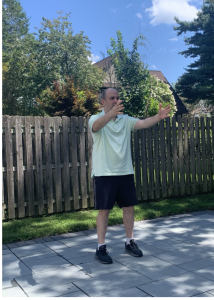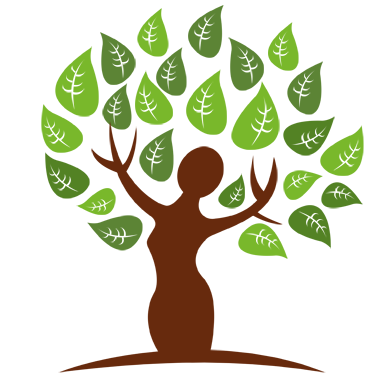
Overcoming Anxiety Through Qigong: A Path to Wellness
For many years during my late teens, twenties, and early thirties, I faced severe anxiety following a traumatic event. Panic attacks became an all-too-frequent part of my life. In my late teens I could not leave the house without my parents, except for school. I was a nervous wreck.
I explored various treatments, including sessions with a psychologist and different medications, but nothing seemed to help. It wasn’t until a friend’s suggestion led me to try acupuncture that I found the most beneficial treatment I had encountered. Shortly after graduating from college, I decided to pursue acupuncture school.
In 2004, during my first semester of acupuncture school, I began training in qigong. Through posture, breathing, and physical relaxation, I discovered a way to manage my anxiety. Initially, I thought the exercises were too simple to be effective, but I couldn’t have been more wrong. Qigong became the key to the mental, emotional, and physical health I had been seeking. Within months of practice, my body and mind began to relax, and there was no turning back. Patients often ask if I receive acupuncture treatments myself; in the last fifteen years, I’ve had maybe three. I rely on diet, lifestyle, and qigong exercises to manage my health.
What is Qigong?
气功 (qigong) is a contemporary term that encompasses various movement, breathing, and energetic practices integral to Chinese Medicine. It offers a holistic approach to wellness, alleviating stress and anxiety while improving overall health.
Qigong (chi gung or chi kung) consists of gentle exercises that enhance fluid movement (blood, synovial, and lymph) and build awareness of how the body moves through space. The practice includes both external and internal movements. The internal movements, known as neigong, or ‘internal power,’ set qigong apart from other forms of exercise in the West, which often emphasize prolonged cardiovascular workouts or muscular strength training.
China’s 3,000-Year-Old System of Self-Healing
The effectiveness of qigong has been proven in China, positively impacting millions over thousands of years by developing the life force, or chi, that animates all living things. Despite its benefits, much knowledge surrounding qigong has been obscured from Western awareness by cultural and language barriers. While acupuncture has gained some recognition, barriers around qigong remain.
The foremost benefit of qigong for many is the relief or prevention of chronic health problems, including internal organ ailments, poor circulation, joint pain, nerve pain, and general physical disease.
Benefits of Qigong
Physical Benefits
- Improved Balance and Coordination: Reduces the risk of falls, particularly in older adults.
- Increased Flexibility and Strength: Regular practice enhances flexibility and builds strength.
- Enhanced Cardiovascular Health: Qigong can improve blood pressure and overall cardiovascular function.
- Better Respiratory Function: Breathing techniques enhance respiratory health.
- Pain Relief: Qigong may help manage chronic pain conditions.
- Boosted Immune System: Some research suggests qigong strengthens the immune system.
Mental and Emotional Benefits
- Reduced Stress and Anxiety: Calms the nervous system, lowering stress levels.
- Improved Mood: Enhances mood and reduces symptoms of depression.
- Increased Focus and Clarity: Improves mental awareness.
- Better Sleep: Promotes relaxation and improves sleep quality.
The Strength Found in Relaxation
Qigong enhances strength through relaxation. True strength comes from releasing tension rather than building muscle. Stress creates tension in the body, which can be redirected to promote optimal circulation and improve overall health. Qigong is also beneficial for enhancing sports performance and mental clarity.
In today’s technology-driven society, many people sit for long hours, leading to increased stress, depression, and anxiety. Practicing qigong trains the body to relax, fostering a tranquil mind.
Qigong Gives Mental Clarity
Many physical ailments are aggravated by mental or emotional stress. The inner tranquility developed through qigong is invaluable. This practice helps manage stress, anger, depression, and confusion, enhancing clarity and perception of the world. Qigong offers many of the same internal benefits as tai chi, yet is generally easier to learn.
Qigong Can Be Practiced by People of Any Religion
Originally developed to promote health and reduce tension, qigong is practiced by individuals of all spiritual backgrounds. While based in Chinese spiritual traditions, belief in its philosophy is not necessary to practice qigong.
How Does Qigong Fit into Chinese Medicine as a Whole?
Acupuncture uses needles to relax the body, increase circulation, and improve organ function. Chinese Herbal medicine assists in the movement and generation of blood and body fluids while increasing circulation. Chinese bodywork utilizes the same meridians or channels as acupuncture, but instead of needles, practitioners use their hands. Qigong operates within the same system as these practices. By using posture, movement, breathing, mental focus, and relaxation, the body is stimulated similarly to receiving acupuncture or bodywork. In many ways, qigong can create deeper healing than acupuncture; it just requires practice and persistence.
Conclusion
Integrating qigong into your daily routine can be transformative, offering a path to physical and mental wellness. Remember that the strength you gain is rooted in the relaxation you cultivate, leading to a more balanced and fulfilling life.
I have traveled to China many times to study qigong. I have studied a few different styles of qigong both in the United States and in China. In the Mamaroneck acupuncture office, I have offered some simple qigong exercises to patients, but never formal classes. Many years ago, I taught formal qigong classes, and I have decided to start teaching again. I am looking forward to sharing these practices with the Mamaroneck and Westchester community.
Please stay tuned. Classes will soon be offered at the acupuncture office in Mamaroneck.
